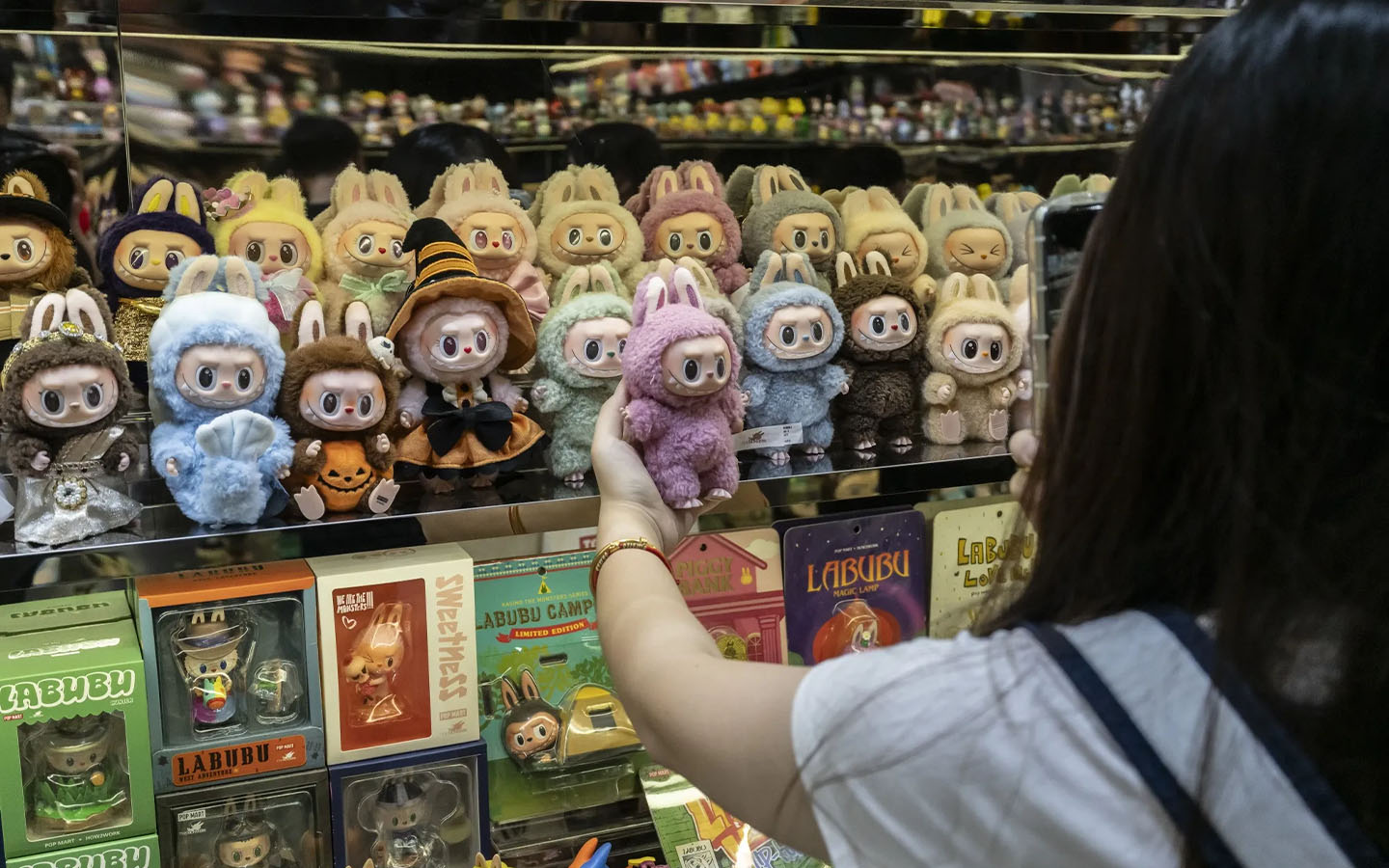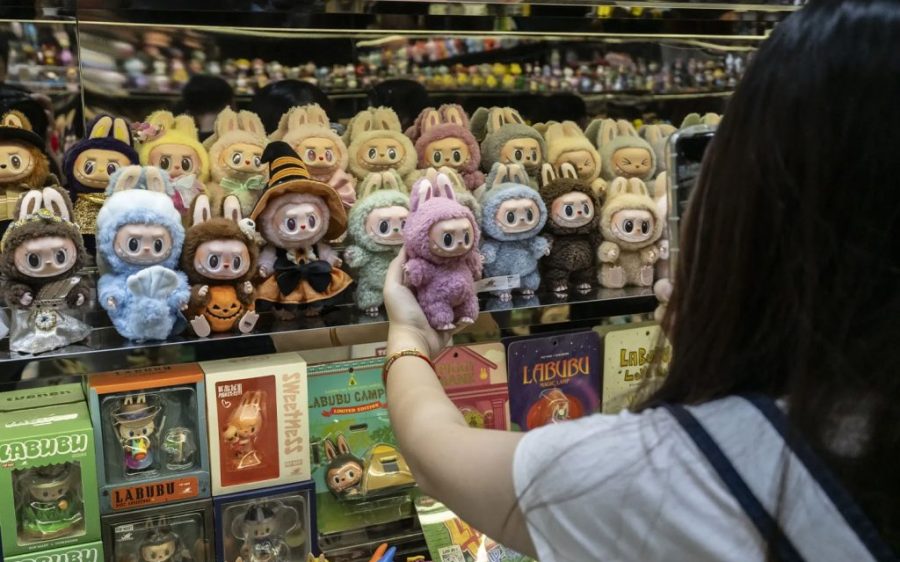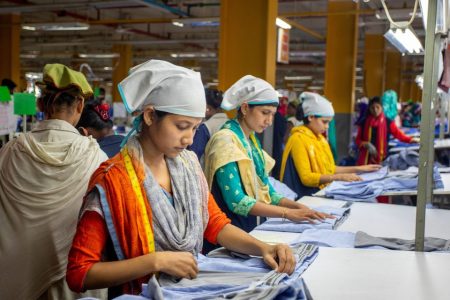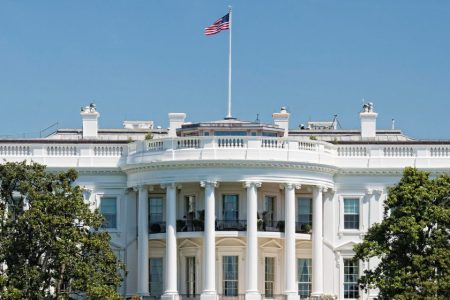A Hong Kong analyst is warning of a Beanie Babies-style bubble for Labubu dolls, questioning maker Pop Mart’s long-term sustainability, reports Bloomberg.
“The scarcity, the hunt, the dopamine hit and the secondary market” fuelling Labubu’s popularity mirrors the speculative cycle of Beanie Babies, Melinda Hu, a senior research analyst at Bernstein in Hong Kong, told Bloomberg. With interest in the sharp-fanged monster dolls declining and no clear successor, Hu sees limited upside in Pop Mart shares.
She’s remarkably alone in that view. Of 46 analysts covering the Beijing-based toy company, 42 rate it ‘buy’ and three say ‘hold’. Only Hu gives it a ‘sell’.
“I wouldn’t advise long-term investors to add the shares without fundamental changes” in strategy, she said. Pop Mart’s Hong Kong-listed stock soared more than 1,500 percent from early 2024 to August 2025, then dropped over 30 percent since.
[See more: Zhuhai customs seize over 26,000 counterfeit Labubu dolls in one haul]
Despite third-quarter results beating forecasts, concerns about slowing growth into 2026 sent shares tumbling 9 percent on 23 October. The worry: growing dependence on Labubu, which accounted for 35 percent of revenue in the first half of 2025, up from 14 percent a year earlier.
“The bull-bear debate boils down to one question: Can the company break free from Labubu dependency and spark growth through other IPs?” Hu told Bloomberg.
JPMorgan, despite downgrading Pop Mart to ‘neutral’ in September, sees potential in Twinkle Twinkle. Analyst Kevin Yin estimates the star-themed line will hit 8 per cent of sales by 2027, up from 2.8 percent in early 2025.
Hu disagrees, arguing she’s seen no proof other lines can generate independent interest or that Labubu’s virality can convert into sustainable popularity like Barbie or Hello Kitty.






